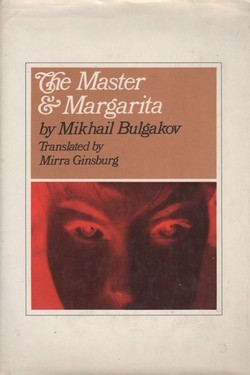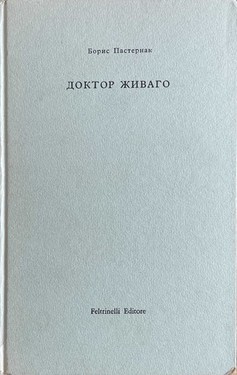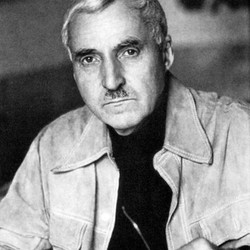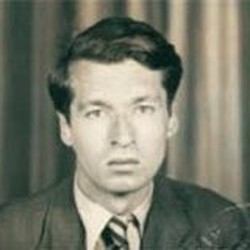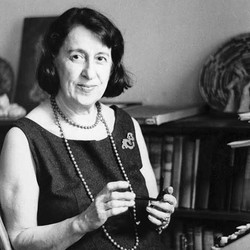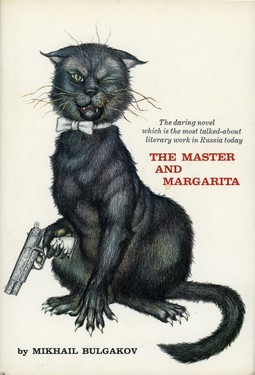Harper & Row will publish on Oct<ober> 4 an English translation of what the publishing house said is the unexpurgated version of the late Mikhail A. Bulgakov’s controversial and long-suppressed novel, “The Master and Margarita.”
On the same day, Grove Press will come out with another translation of the novel from the text that first appeared in the December and January issues of Moskva, a monthly Soviet literary journal.
According to a manuscript that has reached the West through an Italian publisher, however, the Moskva manuscript omitted some sarcastic references to the Communist party bureaucracy and to its censorship of literature and the theater.
The book, which combines an allegorical tale on the theme of Goethe’s “Faust” with a mordant satire of Soviet society, was acclaimed by Moscow critics when it appeared in Moskva, as a masterpiece of Soviet literature. Because the novel had been suppressed for the last 27 years, its publication by an official journal was also seen as evidence of relaxation in the Government’s literary censorship.
According to Harper & Row, however, some 23,000 words were edited out of the two parts published in Moskva although the magazine made no mention that any portions of the novel might be missing.
Soviet Denies Cuts
Jeannette Hopkins, the editor of the book for Harper & Row, said the publisher had obtained “the complete and unexpurgated” Russian manuscript from Giulio Einaudi Editore of Torino, a well-known Italian publishing house.
A spokesman for Einaudi in Rome said yesterday that the additional material, comprising 80 typewritten pages, was made available through Mr. Bulgakov’s widow with the approval of a committee of his friends headed by the well-known Soviet writer Konstantin Simonov.
The Soviet authorities, on the other hand, insist that the complete novel appeared in Moskva. In response to an inquiry by The Harvill Press, which plans to bring out the uncut version of the novel in Britain the Soviet Trade Delegation in London said: “As far as we are informed, the novel ‘The Master and Margarita’ was published without any cuts.”
Both Harper & Row and Harvill submitted the deleted passages obtained through Einaudi to several authorities in Russian literature, including Max Hayward, the English translator of Boris Pasternak’s novel “Doctor Zhivago,” who judged the material to be authentic.
Grove Is Surprised
Grove Press, which had been working on a translation directly from the Soviet magazine in the hope of coming out with the first version of the Bulgakov work in the United States, was taken by surprise when it was informed that Harper & Row had obtained a more expanded manuscript.
“It’s one of those things that can happen with a country that has no international copyright,” a Grove representative said yesterday. “The articles in Moskva were brought to our attention last January and we immediately got Mirra Ginsburg to translate them for us in the hope that may the best translation win.”
The absence of any agreement between the Soviet Union and the United States to protect copyrights leaves publisher free to translate and use literary material at will.
Nevertheless, Miss Hopkins said that Harper & Row had advised the Soviet state publishing house of its intention to publish the Bulgakov novel.
Bulgakov’s “Master and Margarita,” considered to be his major work, was begun in 1928 and completed in 1940, the year the author died at 49. In the last years of his life Bulgakov was severely criticized by the Stalin regime for “antirevolutionary” tendencies and the novel was suppressed.
Bulgakov first achieved literary fame when his 1926 play, “The Days of Turbins,” was hailed by some Soviet critics as the finest drama since the Revolution. It was performed by the Moscow Art Players during their visit in New York in 1935.
The author’s works were banned during his period of disgrace and were not revived until 1965, when the Moscow Art Theater performed his adaptation of Gogol’s “Dead Souls.”
The theme of his novel is the appearance of Mephistopheles in Moscow in the disguise of a consultant on black magic. His appearance touches off a series of weird and improbable events for which the state police tries to hold “foreign hypnotists and gangsters” responsible.
